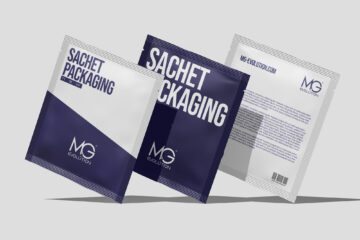Generation Z, those born after 1995, are reshaping the consumer landscape in the beauty industry. Brands strive to adapt to their needs by tracking the latest trends and offering high-quality products at affordable prices. Despite being relatively young, Generation Z has already experienced key events in the contemporary world that influence their purchasing choices – from pandemics to rising living costs and constant online presence. To take a closer look at the cosmetic shopping habits of post-millennials, Mintel has published a report titled “The Future of Consumer Behavior in the Generation Z Era.” What are the key trends that will shape the industry in the coming years?
Focus on finances
Due to constraints on Generation Z’s available income, it’s important for brands to establish engaging connections and convey the value behind the money spent. Representatives of this generation are in various financial situations – some rely on parents due to high living costs, while others manage their incomes independently. Over half of Generation Z prioritizes finances and savings, which affects their beauty-related choices. Cosmetic manufacturers strive to create formulas that meet the needs of young consumers while remaining within their financial means.
Digital preferences
As the first generation raised in the digital age, Generation Z often opts for online shopping, making faster yet more informed purchasing decisions. They use social media for information on cosmetic novelties and product reviews before making purchases. The ability to interact with products virtually is a priority for this generation.
Diversity and sustainable development
Generation Z is the most diverse generation in history and extremely conscious, appreciating diversity and striving for equality. Generation Z youth often hold strong beliefs on topics related to environmental protection, animal welfare, ethical sourcing of materials, and product manufacturing. They tend to support brands that reflect their values and avoid those that do not act ethically.
A lifestyle oriented toward sustainable development is important for Generation Z, which prefers products and brands that care for the environment. They are increasingly skeptical of companies’ claims about sustainable development, demanding authenticity and action on this matter.
In summary, brands must be flexible and adapt to the changing needs of Generation Z to maintain positive relationships with them and grow together in the future. Over the years, consumers of Generation Z will increasingly expect brands to act authentically, engage in diversity, enhance their environmental credentials, and delight them with entertaining content and unique digital experiences.




